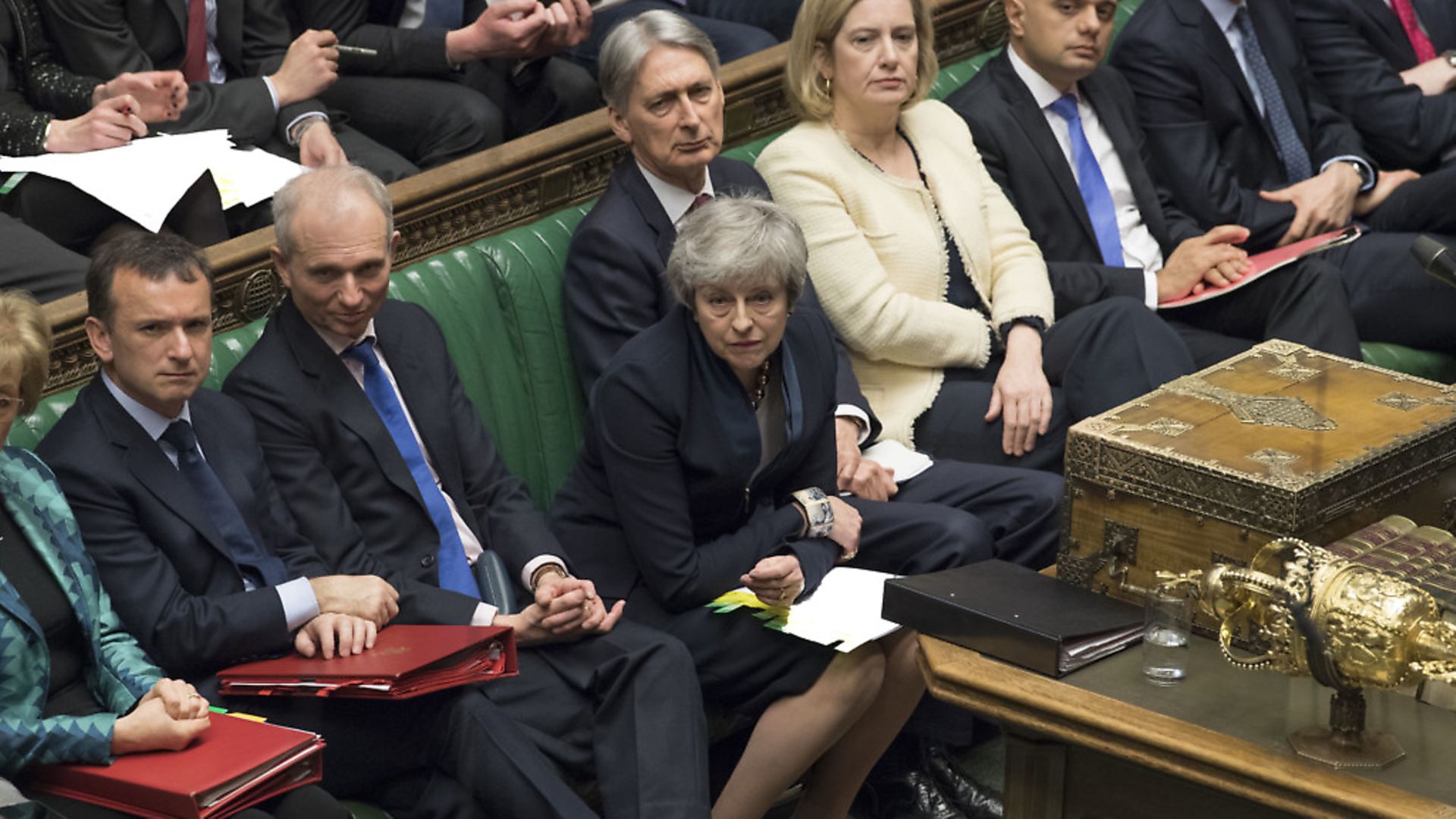
ANDREW ADONIS says the real talent in this Brexit parliament now sits on the backbenches.
Not since Henry VIII’s Reformation Parliament has a legislature been so associated with a single cause as this one, and the next month will determine whether it is remembered for catastrophe or salvation.
Virtually nothing has happened in this parliament besides Brexit. Wandering into the Lords on Tuesday to find a debate taking place on the 70th anniversary of Nato, I was momentarily and pleasantly surprised. But within seconds the speaker got on to Brexit, and Nato secretary general Jens Stoltenberg’s warning that after Brexit 80% of Nato resources will be outside the EU – a cause of serious instability and weakness.
This has become a person thing too. Prior to Brexit, I never made speeches on foreign or European policy in the Lords. Education, transport and social reform were my subjects. I left ‘abroad’ to the ‘experts’.
However, in this parliament virtually all my speeches have been in opposition to Brexit. I have made more speeches in the last year than in the previous five put together, including hour after hour scrutinising and opposing the cascade of no-deal regulations which have been the principal legislative business of parliament for the last six months.
As for Theresa May, no prime minister has made more speeches on one issue since Winston Churchill – and he had better cause and better results.
Monday in the House of Commons has become known as ‘Mayday’ because there is almost invariably a prime ministerial statement on the latest Brexit crisis, followed by two or three hours of the most angry parliamentary exchanges, and the weakest prime ministerial replies, of recent times.
All MPs and peers are now divided into two parties: Leavers and Remainers, like Roundheads and Cavaliers. The bitterness and passions are equally intense. At meetings of the Parliamentary Labour Party speakers are now chosen in careful order for their known positions on Brexit, and virtually nothing else is discussed.
Brexit is creating parliamentary villains and heroes. In Oliver Letwin, Dominic Grieve, Yvette Cooper and Hilary Benn an alternative cross-party anti-Brexit government has been formed, which last week literally seized control of the business of the House from the government – for ‘indicative votes’ on Brexit options and now for the ‘Cooper-Letwin Bill’ to rule out no-deal.
The strain is intense and tempers frayed. Since Christmas all recess has been cancelled, including much of the Easter recess, which should be starting this week. I have just cancelled the weekend to be in the Lords this Friday, in case the Cooper-Letwin Bill reaches us then, and to make sure I am available to counter any filibuster from Leave peers, which could go on through the night.
A striking feature of this Brexit parliament is that almost all the talent is on the backbenches. Apart from Keir Starmer, not a single heavyweight parliamentarian speaks from the Labour or Conservative front benches. Whatever Jeremy Corbyn’s command of his party outside parliament, he is marooned and uncomfortable on the opposition front bench, while May is greeted with equally sullen silence, bordering on contempt, on her side.
Where people sit is revealing. On the Tory side, Jacob Rees-Mogg lounges languidly – nearly horizontal – on a bench to the far right of the government front bench, surrounded by his ERG henchmen, while Dominic Grieve and his Tory Remainers sit as a group on the far left, on the bench farthest behind the government front bench. Chuka Umunna, Anna Soubry and other TIGs have taken possession of a corner of the ‘back’ backbench on the opposition side, as far away from both the opposition and government front benches as it is possible to be.
The star of the whole show is Mr Speaker Bercow – in stronger command of the chamber, vocally and procedurally, than either May or Corbyn, or indeed any speaker in living memory. His stamina is amazing. He has virtually never left the chamber during the entirety of the Brexit debates, including one 14-hour sitting when he deserved a gold medal for bladder control alone.
The fate of the nation has not depended upon parliamentary manoeuvring in this way since the Long Parliament before the English civil war. So far May’s deal has been rejected three times by large majorities, the biggest and longest string of defeats suffered by any government since Charles I.
The game is far from over. Despite the latest May-Corbyn overtures, there will be a fourth, maybe a fifth ‘meaningful vote’. Because May is virtually extinct and her party riven, it is highly unlikely there will be an early election. So the Brexit parliament looks set to continue until it either passes or defeats Brexit. Then it collapses, exhausted and unloved.
Warning: Illegal string offset 'link_id' in /mnt/storage/stage/www/wp-includes/bookmark.php on line 357
Notice: Trying to get property 'link_id' of non-object in /mnt/storage/stage/www/wp-includes/bookmark.php on line 37






